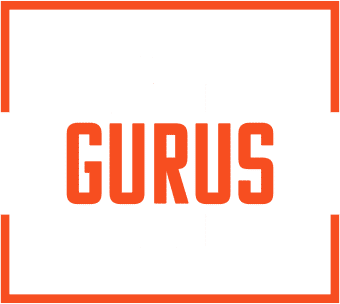Many accounting firms still rely heavily on manual processes for their day-to-day accounting tasks. This traditional approach, while familiar, comes with a range of hidden costs and challenges that can significantly impact the firm’s bottom line and operational effectiveness.
From the direct financial costs to the subtler implications on client relations and employee satisfaction, these outdated practices could be silently hindering the growth and efficiency of your firm.
This article aims to shed light on the often-overlooked expenses associated with manual accounting methods, providing a comprehensive overview of these challenges and the true cost of manual processes in the world of SME accounting.
Manual Processes in SME Accounting Firms
Manual processes encompass a variety of tasks that are performed without the aid of modern automation tools. These activities often include manual data entry, where financial transactions are entered into ledgers or accounting software by hand. It also includes manual reconciliation of accounts, where accountants cross-check and balance financial records without automated software, and paper-based record-keeping, which involves maintaining physical documents and files for financial data.
These practices, once standard in the accounting industry, are increasingly viewed as slow and outdated, as technological solutions can offer faster and more accurate results. The persistence of such methods in many SME accounting firms is often a result of limited resources or hesitation to adopt new technologies.
Understanding these manual processes and their implications is crucial for firms that are looking to improve their efficiency, productivity, and grow in the market.
The Financial Burden of Manual Accounting
The financial implications of manual accounting processes are both direct and significant. One of the most apparent costs is related to labor. Manual data entry and record-keeping are time-consuming tasks, requiring significant man-hours that could be allocated to more productive or strategic activities. The labor cost associated with these tasks can be a substantial burden, particularly for smaller firms with limited staffing resources.
Beyond this, manual accounting methods are prone to human error. Mistakes in data entry or reconciliation can lead to financial discrepancies, which cost time and money to correct, while also impacting reporting and decision-making. These errors can have far-reaching consequences, including financial losses and regulatory compliance issues.
Indirect costs also play a significant role. Manual processes can be slow and inefficient, limiting the firm’s ability to respond quickly to client needs. The absence of real-time financial data due to slower manual processing hinders effective decision-making and strategic planning. In a sector where timely and accurate financial information is crucial, these delays and inefficiencies can result in missed opportunities, frustrated clients, and little or no growth.
Operational Challenges and Risks
Manual processes often result in inefficiencies that can bog down a firm’s day-to-day operations. For instance, manual data entry and reconciliation limit the speed at which accounts can be updated and reported. This delay can affect everything from client communications to internal decision-making, reducing the firm’s ability to respond swiftly to changes or queries.
Moreover, manual processes carry significant risks, particularly in the areas of data security and compliance. Physical documents are vulnerable to damage, loss, or theft, posing a risk to the security of sensitive financial information. Failing to comply with data protection laws has severe consequences, including fines, reputational damage, and even lawsuits.
Additionally, manual processes can make it difficult to maintain a clear audit trail, further complicating compliance efforts.
Impact on Client Relationships and Firm Reputation
The efficiency and reliability of accounting processes are directly linked to client satisfaction. Manual methods, prone to errors and delays, can lead to frustration and dissatisfaction among clients. In an industry where trust and accuracy are paramount, any compromise in these areas can significantly impact client relationships. Dissatisfied clients are much more likely to seek services elsewhere.
The reputation of an accounting firm is a critical asset. Inaccuracies, delays, or data breaches resulting from manual processes can harm the firm’s standing in the industry. A reputation for outdated practices or inefficiencies can also make it challenging to attract new clients, further hindering growth and success.
Employee Morale and Turnover
One overlooked but crucial aspect of manual accounting processes is the impact on employees. Repetitive and mundane tasks, such as data entry, can lead to low job satisfaction and morale. This dissatisfaction can have a domino effect, shaping team dynamics and productivity.
Moreover, firms that rely heavily on manual processes may find it challenging to retain talented staff. Professionals in the accounting field, especially those who are tech-savvy, often seek workplaces that utilize modern technology and practices. Firms that fail to modernize may struggle to attract and retain such individuals, leading to higher turnover rates.
Employee turnover is not just a human resources issue; it also carries a financial impact, with costs associated with recruiting, training, and the lost productivity during transition periods.
ITGurus: Streamlining Accounting Operations with Modern Digital Solutions
It’s clear that the cost of manual processes in SME accounting firms extends far beyond the surface-level financial implications. In an industry where precision, efficiency, and reliability are paramount, clinging to outdated manual practices can hinder a firm’s success and growth.
ITGurus offers a range of services to improve the daily processes of your accounting firm. Our team will pinpoint, implement, integrate, and support the solutions your business needs to reduce the burden of manual tasks, enhance the accuracy of your financial reporting, and focus on strategic activities that drive growth and client satisfaction.


